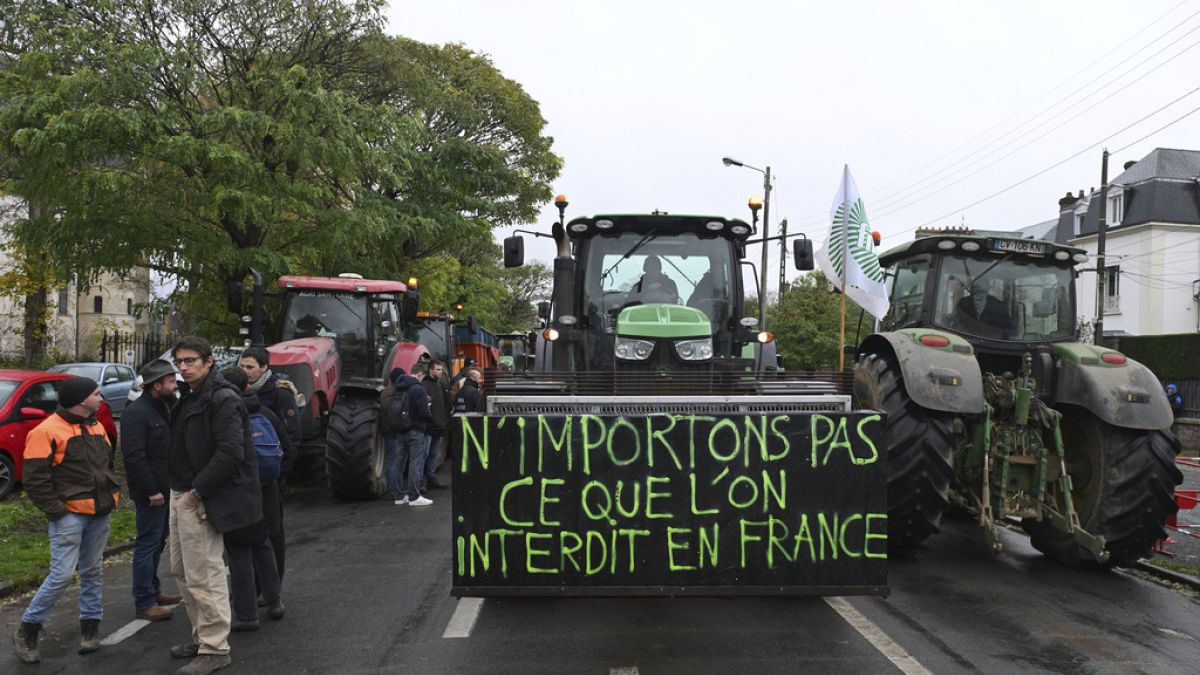While Germany and Spain strongly endorse the Mercosur deal, France is trying to rally a blocking minority to halt the agreement. It is hopeful that Italy, Austria, Poland and the Netherlands will join Paris.
As negotiators from all sides on the Mercosur deal enter a new round of negotiations this week ahead of a meeting in Uruguay on 5 and 6 December at which there are hopes the deal can be closed, France is stepping up its attempts to rally support from Italy, Austria, Poland and the Netherlands to halt the deal in its tracks.
After 25 years of talks, the EU-Mercosur free trade agreement (FTA) still lacks unanimous support from member states as fears of the agricultural sector’s future clash with the strategic needs of the bloc.
A political agreement was reached on 28 June 2019 to open up trade between the 27 member states of the EU and the four founding members of the South American bloc, Argentina, Brazil, Paraguay and Uruguay. (Bolivia joined the Southern Common Market, commonly known by its Spanish abbreviation as Mercosur in 2024 so it did not take part in previous negotiations).
The deal is seeking to establish one of the world’s biggest free trade zones, encompassing 750 million people and about one-fifth of the global economy.
France has remained steadfast against the deal but will need to persuade four countries representing 35 % of Europe’s population to prevent Mercosur from getting through once an agreement has been signed by the Commission’s negotiators.
Germany and Spain are leading a coalition of 11 states in favour of the deal and keen to find new trading opportunities, at a time when Donald Trump is threatening the European Union with a trade war and the EU wants to reduce its dependency on Chinese markets.
“The reasons why we have doubts are shared far beyond France,” a French diplomat told Euronews, confident that his country will manage to convince others to oppose the deal.
Agriculture ministries from Poland and Italy have expressed reservations about the prospect of a Mercosur deal in recent weeks. Poland’s agriculture ministry issued a public statement suggesting the trade deal would imperil its agricultural sector and particularly poultry. Last week Italian Agriculture Minister Francesco Lollobrigida demanded that Mercosur farmers be subject to the same “obligations” as their EU peers, and has said the treaty in its current form is “unacceptable”.
Ireland, the fifth largest beef exporter in the world, also has serious concerns about the deal, fearing that the competition would halve the prices in its main European markets, such as France. Belgian farmers have also protested against the trade deal.
However it remains to be seen if these countries will join France and attempt to stymie the agreement.
The position of the Polish agriculture minister was not confirmed by its government. And more recently Italian Foreign minister Antonio Tajani tempered the remarks of his colleague in the agriculture ministry, saying he was in favour of the agreement provided “it did not harm Italian agriculture”.
An official from the French trade ministry told Euronews that there are hopes in Paris that once the Italian EU commissioner-designate Raffaele Fitto is officially confirmed by the European Parliament this Wednesday, that Rome will fold in behind the opponents of the deal.
Meanwhile Austria’s Parliament voted against the deal as it then stood in 2019, repeating its position then in 2021. “If there were something new in the deal, we would have to talk again. It remains very open,” an Austrian diplomat told Euronews.
The Commission has downplayed risk to agriculture that may arise from the deal.
“In fragile sectors, we have set volumes that can be absorbed by the markets,” an EU official told reporters mid-November. This official suggested that beef import increases arising as a result of the treat might amount to no more than 99,000 tonnes each year, around 1,6% of total EU production; pork 25,000 tonnes (0,1%); and poultry up to 188,000 tonnes (1,4%).
France is also advancing environmental argument against the deal, explaining that Mercosur’s standards are lower than those of the Europeans.
“We want the Paris agreement to be an essential clause of the deal,” French trade minister Sophie Primas said on arrival at a trade ministers meeting in Brussels last week.
France is also wooing the Netherlands. In 2020, the Dutch Parliament’s lower chamber voted against the Mercosur agreement. And Dutch trade minister Reinette Klaver reiterated concerns during last week’s meeting of trade ministers in Brussels.
“The Lower House is very critical of the agreement and certainly of the agriculture part,” she told reporters.
Meanwhile Germany and Spain are strongly endorsing the deal. Germany is anticipating a fillip in exports from the deal according to Lora Verheecke, professor of European trade policy at the Université Catholique de Lille.
“For Germany, we clearly have car exports, but also exports of chemicals, pharmaceuticals and pesticides. And for Spain, we have agricultural exports, but rather agricultural products with high added value. We’re thinking of olive oil and Serrano ham, for example,” she said.
With the Uruguay meeting looming at the end of next week, the lobbying from all sides will intensify.
Checkout latest world news below links :
World News || Latest News || U.S. News
The post Mercosur: France seeks to rally blocking minority against trade deal appeared first on WorldNewsEra.

